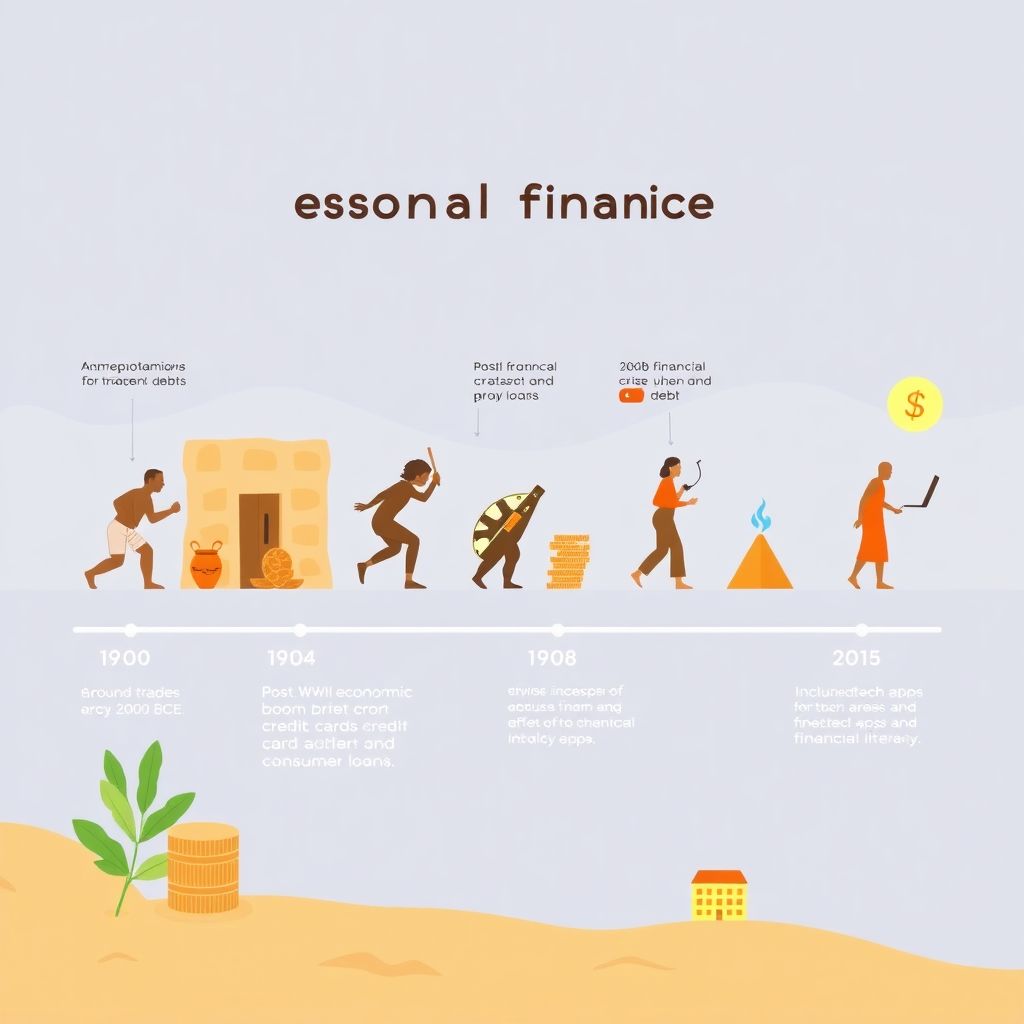Understanding the Roots: A Brief History of Personal Finance

To truly grasp how to manage money confidently in 2025, it’s essential to understand where personal finance came from. The concept of budgeting and saving is far from new. Ancient Mesopotamians used clay tablets to track trade and debts as early as 3000 BCE. Fast-forward to the 20th century: the post-WWII economic boom introduced the average citizen to credit cards, mortgages, and consumer loans. The 2008 financial crisis, however, became a turning point—highlighting the risks of poor financial literacy and excessive borrowing. In response, the 2010s saw a surge in financial education resources, fintech innovations, and a cultural shift toward debt awareness. Today, in 2025, managing money is not just about numbers—it’s about mindset, tools, and long-term strategy.
Inspiring Stories: From Financial Chaos to Control
Take the story of Maya Thompson, a single mother from Detroit. In 2020, she was drowning in over $20,000 of credit card debt, living paycheck to paycheck. She began learning about budgeting through free online courses and used a simple envelope system to track expenses. By 2023, she paid off all her debt and launched a personal finance blog that now supports her full-time. Or consider Luis Ortega, a college student who turned a side hustle selling vintage sneakers into a six-figure e-commerce business by mastering cash flow and reinvesting profits wisely. These stories show that regardless of income or background, financial clarity is achievable when paired with education and persistence.
Practical Strategies for Building Financial Confidence
Financial confidence doesn’t appear overnight—it’s built step by step. Here’s a structured approach for beginners:
1. Track Every Expense for 30 Days – Awareness is the first step. Use apps like Mint or You Need a Budget (YNAB) to monitor where your money goes.
2. Create a Zero-Based Budget – Assign every dollar a role. This method ensures that your income minus expenses equals zero, giving every dollar purpose.
3. Build an Emergency Fund – Start with $500, then aim for 3-6 months of expenses. This cushion provides peace of mind and reduces reliance on credit.
4. Tackle High-Interest Debt First – Use the avalanche method to pay off debts with the highest interest rates, saving money in the long run.
5. Invest Early, Even If Small – Thanks to fractional investing, platforms like Robinhood or Fidelity allow you to begin with just $5.
Each step builds financial muscles that, over time, translate into confidence and control.
Success Stories: Projects That Changed Lives
Several grassroots initiatives have proven that foundational financial education can be transformative. The “MoneyWise Youth” program launched in 2021 in Chicago taught basic money skills to high school students. Within three years, over 70% of graduates reported improved financial habits. Another example is the “Debt-Free Together” community, a peer-support group that helped over 10,000 members collectively eliminate more than $100 million in debt by 2024 through accountability and shared resources. These results underscore the power of community and education in reshaping financial futures.
Continuous Growth: Resources for Lifelong Learning

In 2025, the tools to master your money are more accessible than ever. Whether you prefer podcasts, books, or interactive platforms, there’s something for every learning style. Recommended resources include:
– Books: *“The Psychology of Money”* by Morgan Housel, and *“Your Money or Your Life”* by Vicki Robin.
– Courses: Coursera’s “Financial Planning for Young Adults” or Khan Academy’s free personal finance series.
– Apps: PocketGuard, EveryDollar, and Goodbudget offer intuitive budgeting interfaces.
– Podcasts: *ChooseFI*, *Afford Anything*, and *The Dave Ramsey Show* continue to grow in popularity for their practical advice.
The key is consistency. Allocate 30 minutes per week to financial education, and over time, your knowledge—and confidence—will compound like interest.
Final Thoughts: Your Money, Your Power

Managing money with confidence in 2025 is not about being perfect—it’s about being intentional. With historical lessons to guide us, success stories to inspire, and a wealth of resources at our fingertips, anyone can take control of their financial future. Remember, confidence comes not from never making mistakes, but from learning how to recover, adapt, and grow. Start today, take one small step, and let that momentum carry you toward a life of financial empowerment.
